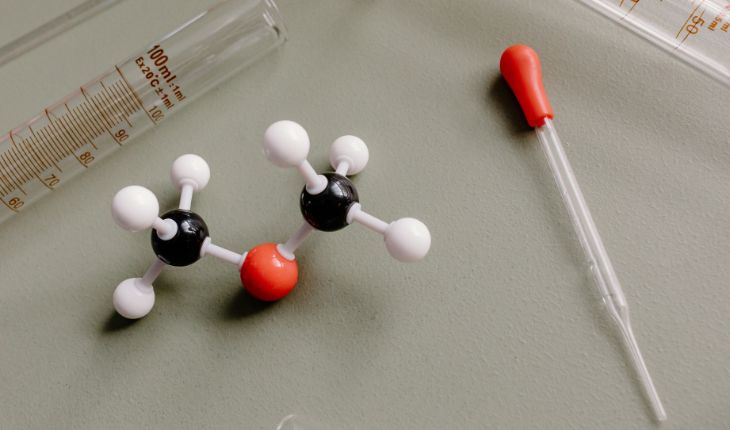Methanol: The Versatile Fuel Shaping a Cleaner, Smarter Future

Strong 8k brings an ultra-HD IPTV experience to your living room and your pocket.
In the race toward a more sustainable and energy-efficient world, methanol is quietly emerging as one of the most dynamic and transformative chemical compounds. Often referred to as wood alcohol, methanol is a colorless, flammable liquid that has come a long way from its origins in distillation processes. Today, it plays an integral role in diverse industries, fuels energy transitions, and is even finding its way into the next generation of cleaner fuels and green chemicals.
What makes methanol truly fascinating is its dual identity—it functions both as a fuel and as a critical feedstock in chemical production. From powering engines to synthesizing everyday products, methanol's presence is woven into modern life more intricately than most realize. And with new production methods and applications being developed, its impact is only set to grow.
Expert Insight from Expert Market Research
According to Expert Market Research, methanol’s unique ability to serve as a cleaner fuel, feedstock, and energy carrier places it at the heart of energy transition strategies worldwide. Particularly in the Europe Methanol landscape, regulatory support and environmental consciousness are accelerating the shift towards bio-methanol and e-methanol.
With increasing investments in methanol-powered transport, synthetic fuel alternatives, and carbon capture integration, the European market is shaping itself as a global leader in methanol innovation. As new technologies emerge and scale, methanol’s role in enabling a circular and sustainable economy is becoming more prominent than ever.
What is Methanol and Why Does It Matter?
Methanol (CH₃OH) is the simplest alcohol molecule, made up of one carbon atom, three hydrogen atoms, and one hydroxyl group. While it was historically produced from wood pyrolysis, today’s methanol is primarily synthesized from natural gas, coal, or renewable sources like biomass and CO₂. Its ability to blend with gasoline, its clean-burning nature, and its versatility in chemical synthesis make it indispensable in a world that is steadily shifting away from fossil fuels.
Methanol is used in manufacturing formaldehyde, acetic acid, plastics, paints, adhesives, and synthetic textiles. Its role doesn’t end there—it is increasingly being explored as an alternative marine fuel and as a hydrogen carrier in fuel cell technology. Because methanol burns with fewer emissions than diesel or gasoline, it is gaining attention as a transitional energy source in the decarbonization journey.
Methanol’s Expanding Role in Clean Energy and Transportation
One of the most promising aspects of methanol lies in its potential to decarbonize transportation and industry. Methanol can be used in internal combustion engines with minor modifications and is especially appealing for marine shipping, where it can drastically cut down sulfur oxide (SOx), nitrogen oxide (NOx), and particulate emissions. This makes it a strong candidate for compliance with global environmental regulations, especially in ports and emission control areas.
In the renewable energy space, methanol is also being considered as a storage medium for surplus wind and solar power. Green methanol, made from captured carbon dioxide and hydrogen from renewable electricity, could be a game-changer—creating a carbon-neutral energy cycle that addresses climate concerns without compromising performance.
Spotlight on Europe Methanol Trends and Developments
Across the globe, different regions are embracing methanol in unique ways, but the spotlight increasingly falls on Europe Methanol initiatives for their bold steps toward sustainability. European countries are investing heavily in green methanol technologies, seeking to replace traditional fossil fuels with cleaner alternatives in both industrial and transport sectors. Northern Europe, in particular, is pioneering the use of methanol-powered ships and exploring its application in fuel cell electric vehicles.
The continent’s stringent climate goals and regulatory frameworks have driven innovation and adoption. Green methanol projects are underway in countries like Denmark, Sweden, and Germany, supported by both public and private investments. These projects not only aim to reduce emissions but also strengthen energy independence by utilizing locally sourced renewable feedstocks. The rise of Europe Methanol initiatives is setting a benchmark that many other regions are beginning to follow.
Regional Diversification: A Global Outlook on Methanol Use
While Europe is setting the pace for sustainable methanol use, other regions are exploring its benefits through different lenses. In Asia-Pacific, countries like China are the largest producers and consumers of methanol, largely utilizing it as a blend in fuels and a feedstock in petrochemical industries. China’s push for methanol-fueled vehicles and methanol-to-olefins (MTO) plants underscores its strategic importance in regional energy and manufacturing policies.
In North America, methanol is being integrated into energy storage systems and clean fuel research, particularly in California where alternative fuel use is incentivized. The Middle East continues to be a significant player in methanol production, benefiting from abundant natural gas reserves and contributing to global supply chains.
The Safety, Storage, and Handling Side of Methanol
Despite its many benefits, methanol requires responsible handling due to its flammability and toxicity. It is highly poisonous if ingested or absorbed in large quantities, and storage must be managed under safety protocols that minimize risks of leaks or contamination. Thankfully, modern storage tanks and transport systems are equipped with safety mechanisms to mitigate such hazards.
Methanol’s volatility is matched by its biodegradability and lower environmental impact compared to traditional hydrocarbons. In spill situations, it breaks down more quickly in the environment, posing less long-term damage, making it more favorable in eco-sensitive applications.
Note: IndiBlogHub features both user-submitted and editorial content. We do not verify third-party contributions. Read our Disclaimer and Privacy Policyfor details.







